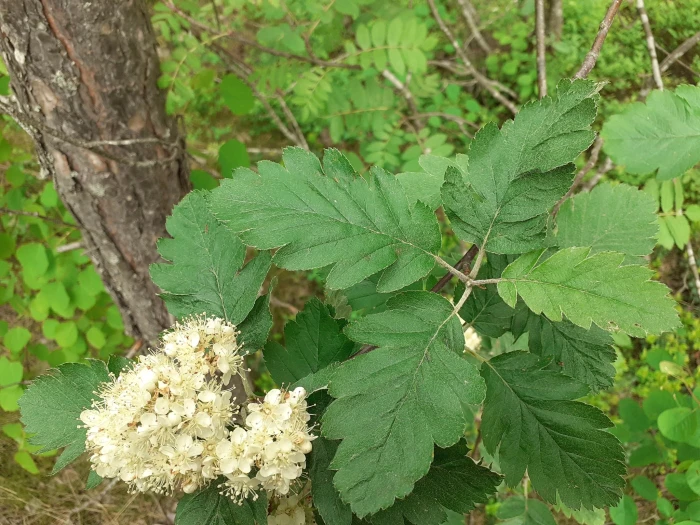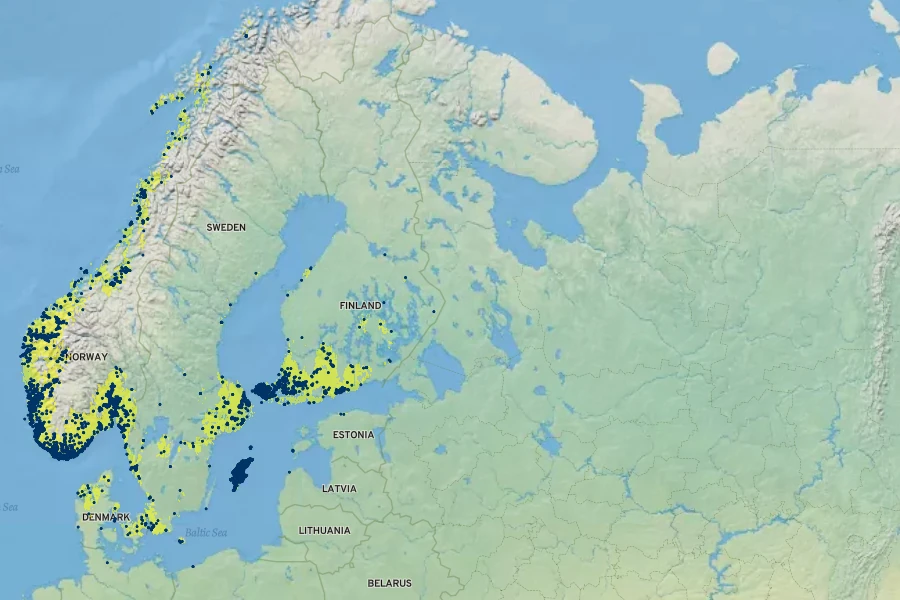Oakleaf Mountain Ash
/
(Hedlundia hybrida)
Oakleaf Mountain Ash (Hedlundia hybrida)
/

© qvaak
CC BY-SA 4.0
Image By:
© qvaak
Recorded By:
Copyright:
CC BY-SA 4.0
Copyright Notice:
Photo by: © qvaak | License Type: CC BY-SA 4.0 | License URL: http://creativecommons.org/licenses/by-sa/4.0/ | Uploader: qvaak | Publisher: iNaturalist |

























Summary
Hedlundia hybrida, commonly known as Oakleaf Mountain Ash, is a deciduous tree that is a hybrid between Sorbus aucuparia (European rowan) and Sorbus intermedia (Swedish whitebeam). It is native to the mixed boreal forests and subalpine zones of Scandinavia, including Norway, eastern Sweden, southwestern Finland, and Latvia. The tree typically grows to a height of up to 49 feet (15 meters) and is characterized by a stout trunk and smooth, grey bark that may become slightly fissured with age. The leaves resemble those of the oak, hence the common name, with a pinnate structure and a fresh green color that turns to shades of yellow and red in the fall.
The Oakleaf Mountain Ash is valued for its ornamental features, including clusters of white flowers that bloom in late spring and are moderately showy. By mid-autumn, these flowers give way to bright red pomes that are attractive to birds such as thrushes and waxwings. The tree is often used in urban and suburban landscapes for its compact size and attractive foliage. It prefers well-drained soils, tolerates a range of soil types, and requires full sun to partial shade. While it is generally easy to maintain, it can be susceptible to fireblight and other diseases common to the Rosaceae family. Gardeners should be aware of its potential to hybridize with other Sorbus species, which can lead to unwanted seedlings in the garden.CC BY-SA 4.0
The Oakleaf Mountain Ash is valued for its ornamental features, including clusters of white flowers that bloom in late spring and are moderately showy. By mid-autumn, these flowers give way to bright red pomes that are attractive to birds such as thrushes and waxwings. The tree is often used in urban and suburban landscapes for its compact size and attractive foliage. It prefers well-drained soils, tolerates a range of soil types, and requires full sun to partial shade. While it is generally easy to maintain, it can be susceptible to fireblight and other diseases common to the Rosaceae family. Gardeners should be aware of its potential to hybridize with other Sorbus species, which can lead to unwanted seedlings in the garden.CC BY-SA 4.0
Plant Description
- Plant Type: Tree
- Height: 15-25 feet
- Width: 20-30 feet
- Growth Rate: Moderate
- Flower Color: White
- Flowering Season: Spring
- Leaf Retention: Deciduous
Growth Requirements
- Sun: Full Sun, Part Shade
- Drainage: Medium
Common Uses
Bird Garden, Low Maintenance
Natural Habitat
Mixed boreal forests and subalpine zones
Other Names
Common Names: Swedish Service Tree, Finnish Whitebeam
Scientific Names: Hedlundia hybrida, Aria hybrida, Aria pinnatifida, Ariosorbus hybrida, Azarolus pinnatifida, Crataegus aria var. fennica, Crataegus fennica, Crataegus fennica, Crataegus fennica subsp. kalmii
GBIF Accepted Name: Hedlundia hybrida
